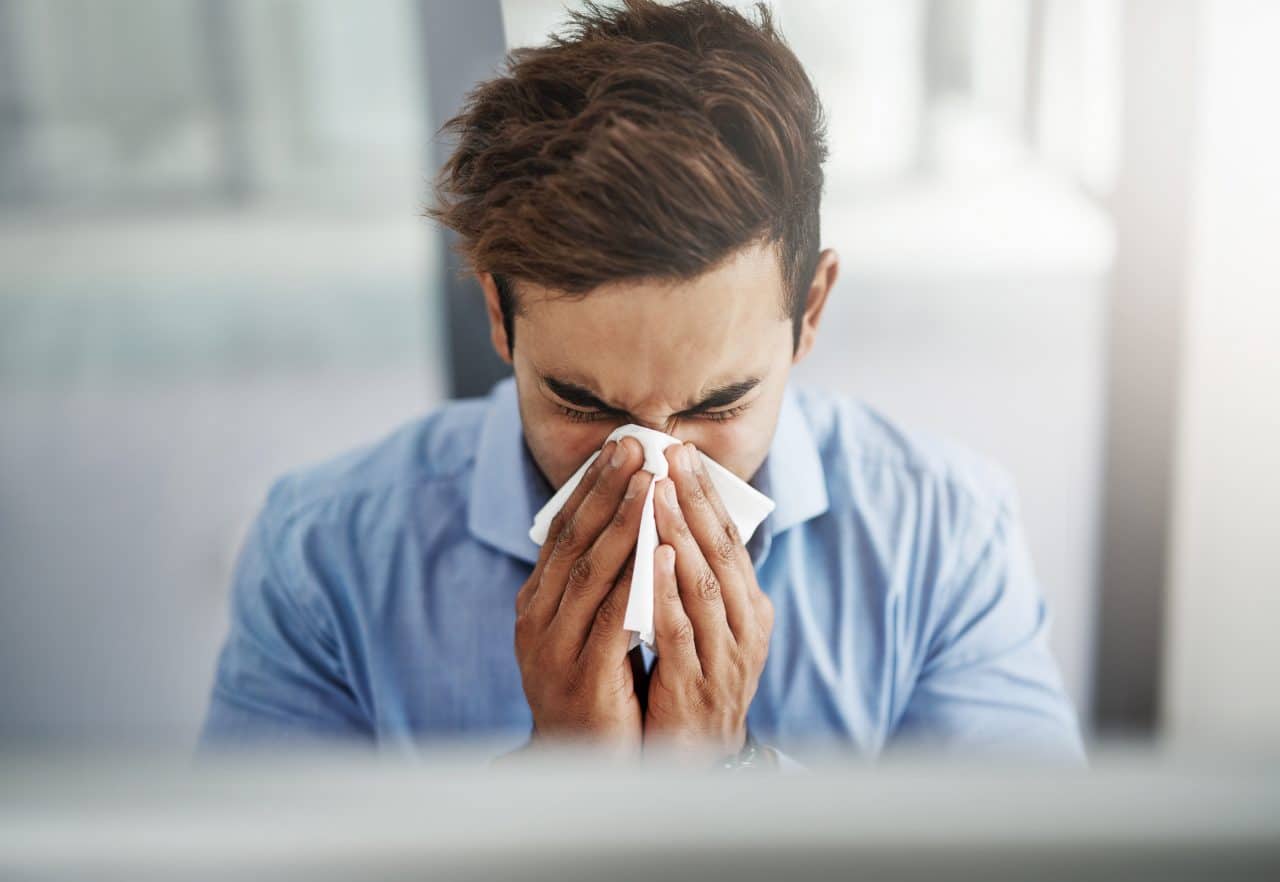You may think that allergy season is over when the leaves on the trees at Grant Park begin to change colors, but unfortunately for many, this is not the case. Ragweed, mold and dust mites are allergens that can cause symptoms well into fall. Below we review what causes fall allergies and strategies for managing them.
What Causes Allergies?

Your immune system works to protect your body from diseases, viruses and infections. But for people with allergies, their immune system mistakes harmless substances as dangerous intruders and overreacts.
In order to fight off the intruder, your immune system releases antibodies called Immunoglobulin E (IgE), which causes your cells to release histamine. Histamine increases your mucus production and triggers inflammation, swelling and itching.
How Can I Manage My Fall Allergies?
There are medical and non-medical strategies to manage allergies in the fall.
Medical Strategies
The first line of defense against allergies is to take an antihistamine. Antihistamines are available in oral, eye drop and nasal spray form. Options include OTC non-drowsy medications like Allegra, Claritin and Zyrtec; older-generation OTC medications like Benadryl; and prescription antihistamines like hydroxyzine and carbinoxamine.
Another option that works long-term is immunotherapy. Immunotherapy is available in either allergy shot or allergy drop form. Both work the same way: they introduce small amounts of allergens into the body so the immune system can build up a tolerance. Immunotherapy is a three- to five-year commitment. The first step in starting immunotherapy is to get an allergy test.
Non-Medical Strategies
Non-medical strategies for preventing allergies involve practicing avoidance of allergens. Strategies include:
- Monitoring allergen counts in your area and staying indoors with the windows shut when counts are high.
- Delegating outside chores to someone without allergies or hiring a professional.
- Showering and changing clothes right away after spending time outdoors.
- Bathing and washing your hair before going to bed.
- Keeping pets out of your bedroom and bathing them weekly.
- Vacuuming and dusting your home regularly.
- Using an air purifier in your home.
For more information about managing fall allergies or to schedule an appointment with an expert allergist, call ENT of Georgia today.